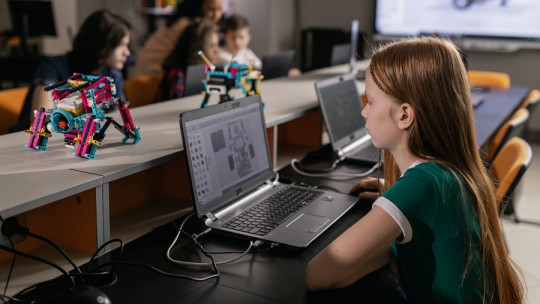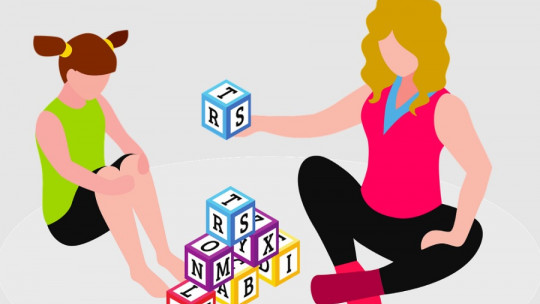Raising a child is not always an easy task; There are many elements that must be taken into account and, as always, there are no “magic recipes”: part of success lies in knowing how to adapt to unforeseen events and the particularities of our families’ dynamics.
Due to the complexity of this process, Some fathers and mothers, especially first-time ones, may require some support to improve the relationship they have with the youngest members of the house Here you will find a summary of tips to keep in mind that are generally useful, although as I have already said, each case is unique (and therefore the most effective, and the only solution in the most extreme cases, is to go to the psychologist to family and/or child and adolescent therapy sessions).
Tips to improve the relationship with a son or daughter
A good relationship between parents and children is not only the best vehicle for the youngest to develop correctly; Furthermore, it is necessary to be happy in the family environment. Therefore, when problems arise regarding coexistence, communication and/or expression of emotions, It is necessary to take action as soon as possible, for their good and yours
If you want to know what the main guidelines are for improving your relationship with your children, consult the selection of essential keys presented below.
1. Practice active listening
Listening to our child at all times and making him feel understood both in good times and in tantrums, sadness or states of discomfort is one of the best ways to improve the relationship we have with him. Remember that just because you have much more experience in life does not mean that you should constantly offer condescending and paternalistic treatment: you too can and should learn about what is going on in their mind, what makes them happy and what no, etc.
Both in childhood and in adolescence, maintaining an attitude of active listening with our child will have a positive effect on their self-esteem, as well as on the formation of their future adult personality, and will make them feel that they can count on us, something fundamental. To do this, it is important that, if you did not already do so, you pay attention to the details: when he speaks, do you show signs that you are listening carefully and taking what he says seriously?
Likewise, showing interest in their hobbies and interests also helps establish an emotional bond with our son or daughter and strengthens the positive relationship we want to establish.
2. Apply a democratic educational style
A democratic educational style consists of applying rules of behavior or coexistence at home, consensual and accepted by the entire family, instead of imposing them in an authoritarian or arbitrary way from the beginning. Of course, the parents have the last word as they are the adult references, but everything possible must be done so that the little ones in the house understand the ideas behind, for example, the rules of coexistence and socialization.
It is important to establish well-differentiated limits in the education of children, but it is equally important to make them understand that the rules must be met for the well-being of all.
@professional(2052797, “Are you interested in professional psychological support?”)
3. Share time with him or her
Many cases of bad relationships between parents and children are caused by the fact that they have not spent much time together.
Again, children need to know that they are important to their parents and that their parents want to spend time with them, so The best way to spend quality time with our children is to schedule it with a minimum of advance notice and reserving some hours to be with the family and disconnect from work obligations.
4. Show affection
Shows of affection are also very necessary in the development process of the boy or girl, both in childhood and adolescence, and at each stage of growth the shows of affection are different.
Yes indeed, More important than showing affection towards our children at all times is making them feel loved in general and make it clear to them that we will be there for them whenever they need us.
5. Respect their independence
Children are not “incomplete” people: They have their own thoughts and feelings, and their way of seeing things (even those about which they barely know anything) Like anyone else, our children also need space and time for themselves, without exposing themselves all the time to parental control, or to interrogations about what they do or what they have done.
Likewise, as they grow, they demand more of their own physical and emotional spaces that we must respect to maintain a good relationship with them.
6. Talk about different topics
Children have a large number of questions from a very early age, since they learn from curiosity , and to promote their correct intellectual and emotional development it is important to talk with them about different topics that may be important to them. Although we are not experts either, the simple act of asking questions together and hypothesizing about possible answers is often stimulating.
The same way, It is also important to talk to our children about ourselves, about our lives from our childhood or from our parents, this will help reinforce a positive and close relationship with them and will serve as a reference.
7. Play with him or her
Play is a classic mechanism for forming attachment and a positive relationship with children.
It is important to offer to play with your children at all stages of their growth, including participating in their hobbies when they are teenagers ; This way we will contribute to strengthening our closeness and good relationship with them.
8. Stay calm
The way we talk and communicate with our children is also a crucial element in establishing a good relationship with them.
Maintaining a calm tone even when we are criticizing them for something bad they have done favors communication and understanding with our children and also teaches them behavioral patterns and ways to relate positively.
Of course, That doesn’t mean you always have to totally repress your anger , which is a perfectly legitimate feeling; We simply have to keep in mind that it is not mandatory to “use it” when correcting their behavior (the role of father or mother is not so rigid) and that in some cases it is advisable to manage what we feel (for example, taking a few minutes to calm down ) so that we do not lose a lot of fluidity when communicating verbally.
9. Avoid comparisons
This is especially important when you have more than one child Making comparisons between siblings can be very negative for the victim and have a negative impact on their socialization and the formation of their personality.
Similarly, in only children it is advisable not to make comparisons with other children or with their classmates who may have better grades or greater academic performance: at these ages it is advisable to make them aspire to look like their best version, not so much like the the rest.
Are you looking for psychological assistance services?
If you want to have professional psychological assistance, Get in touch with me I am a psychologist who is an expert in the cognitive-behavioral model, and I have been offering tools for many years to learn to better manage emotions, relational dynamics, and communication styles. I attend in person and also online by video call.









